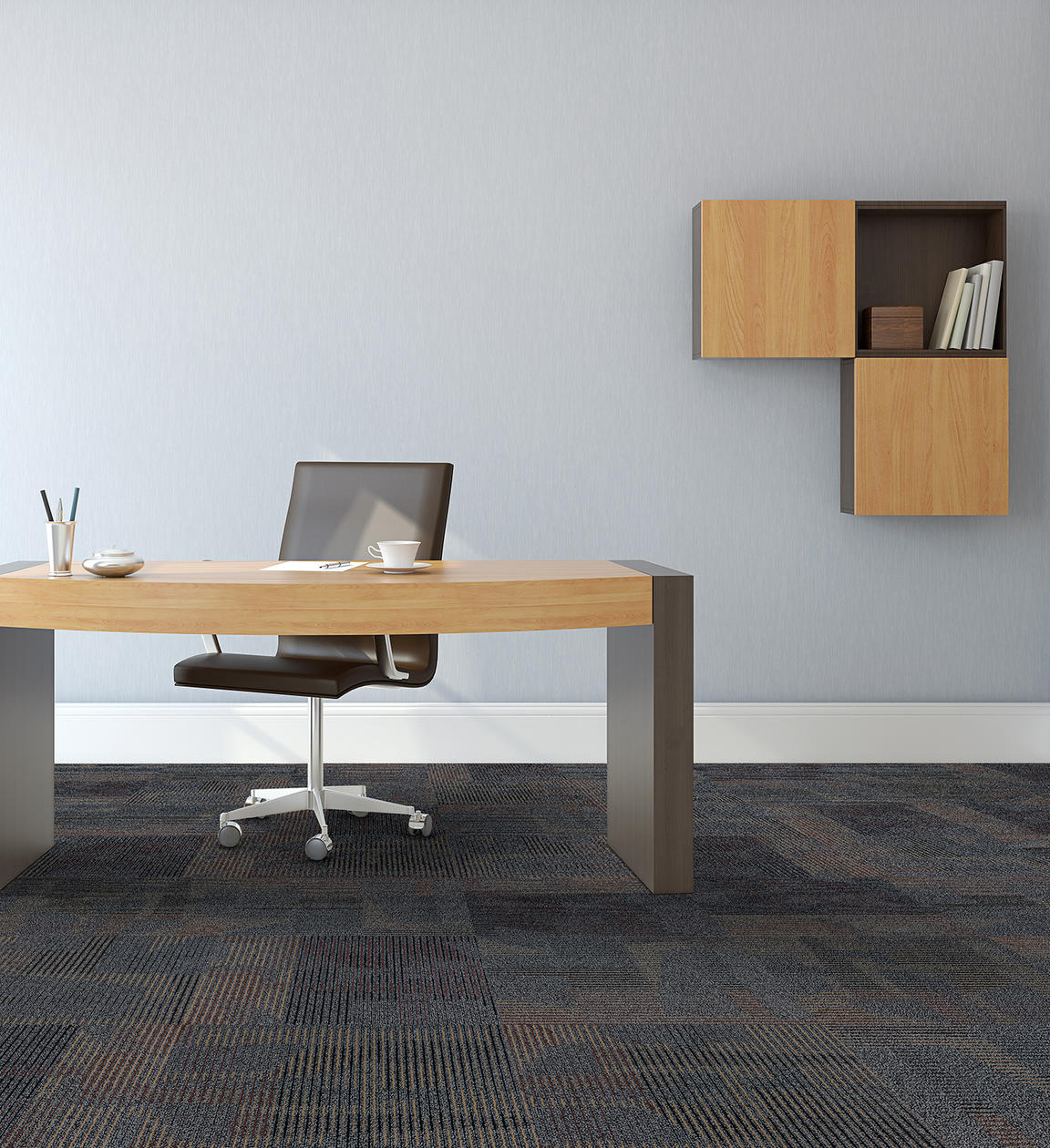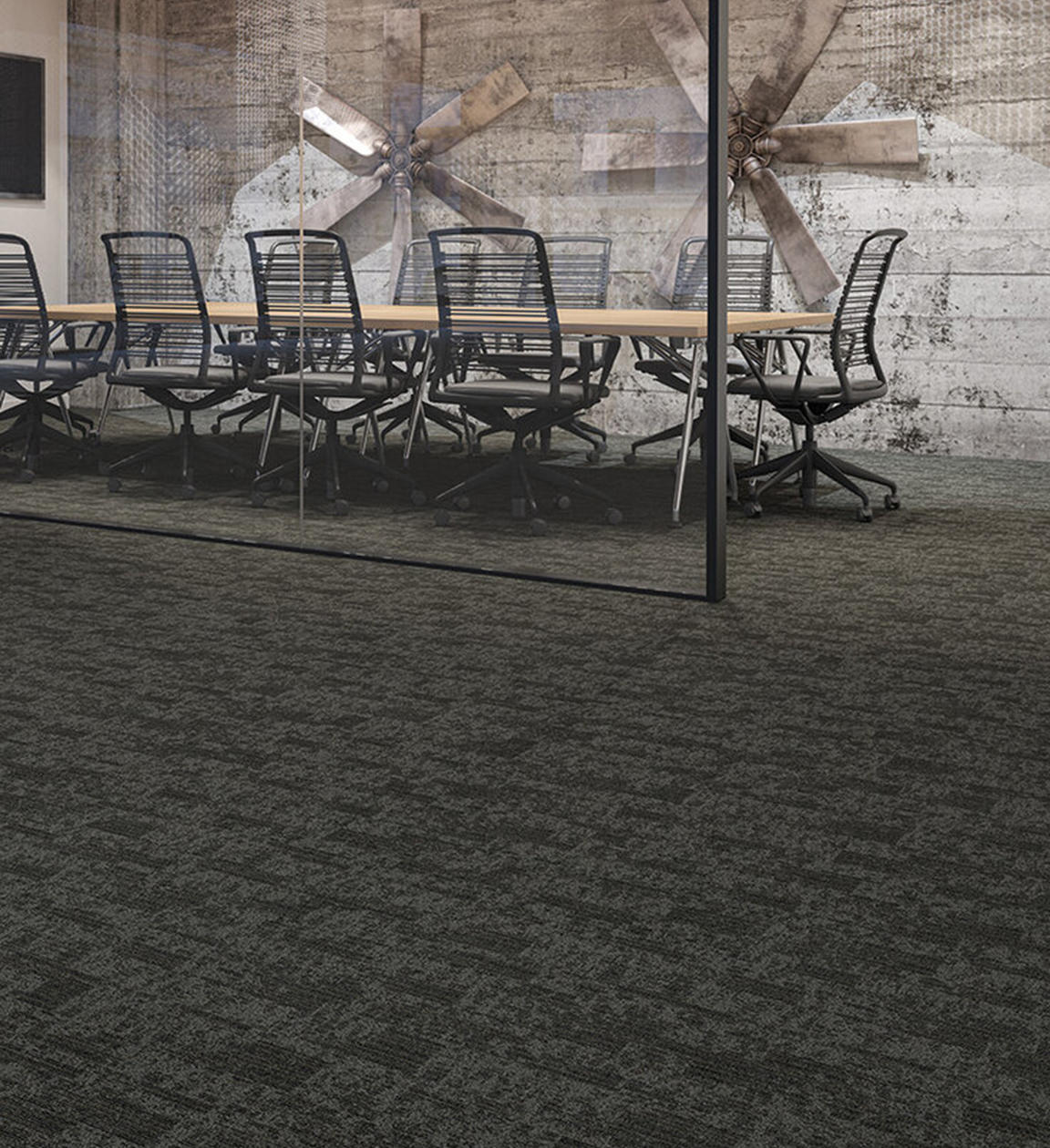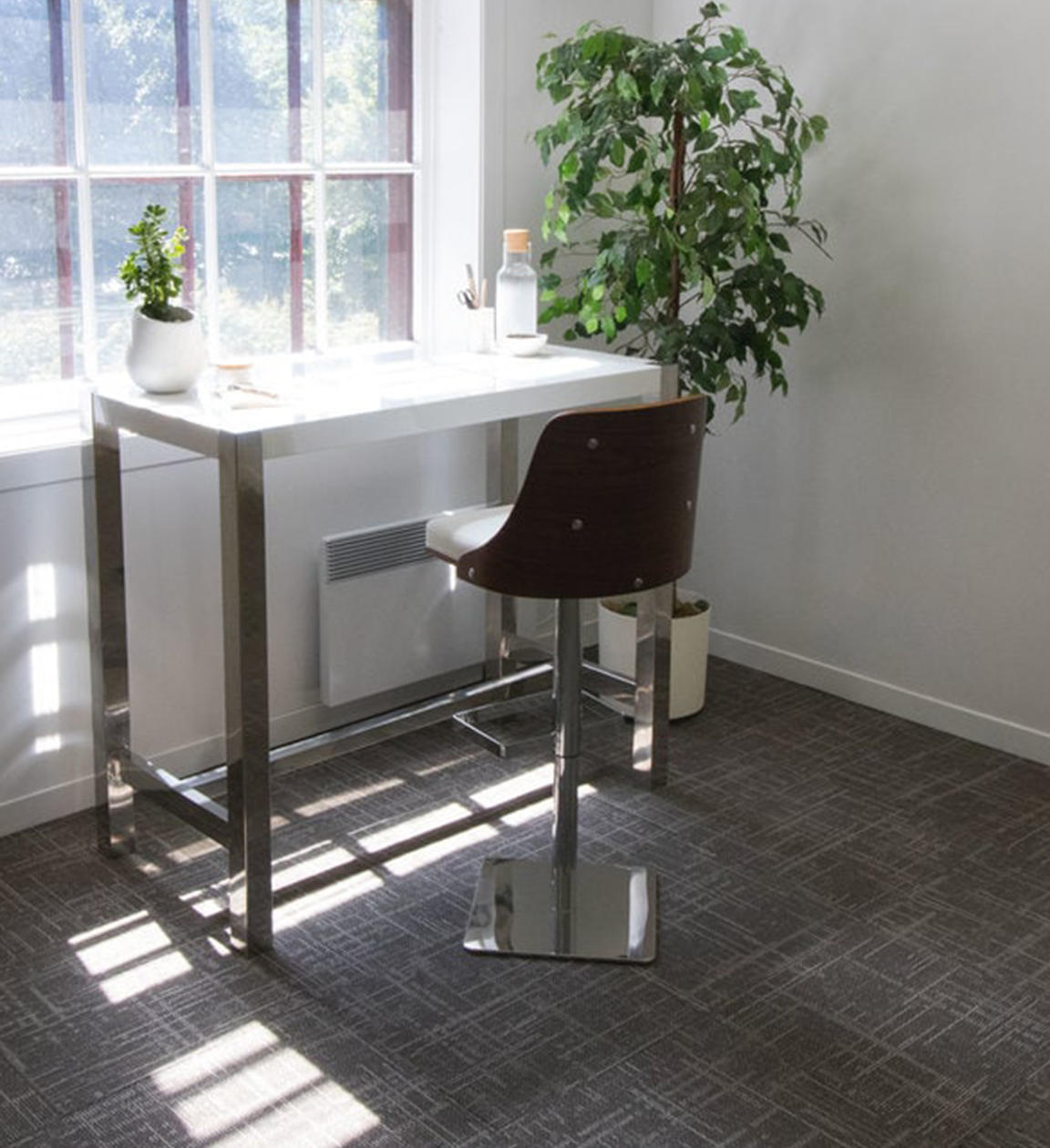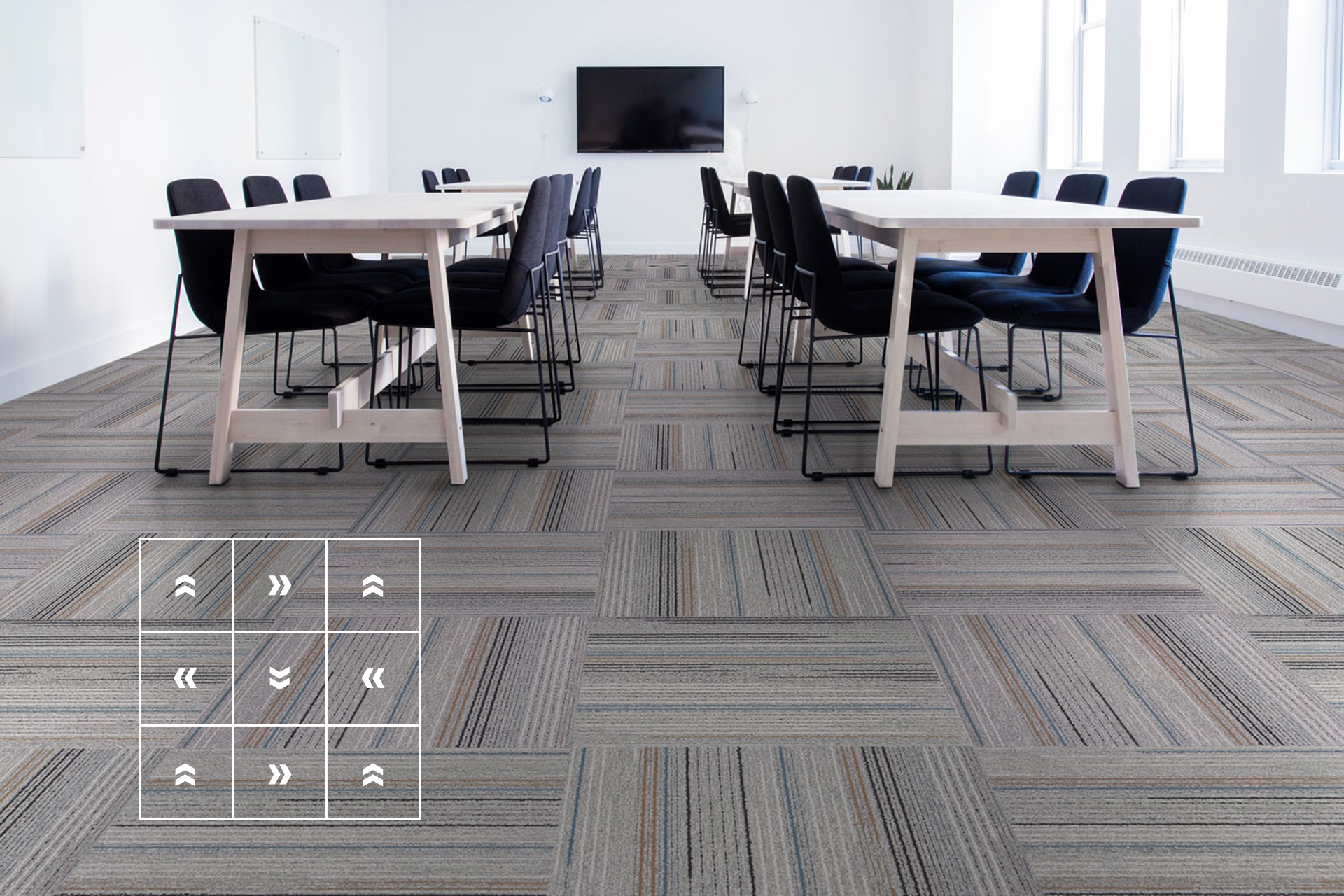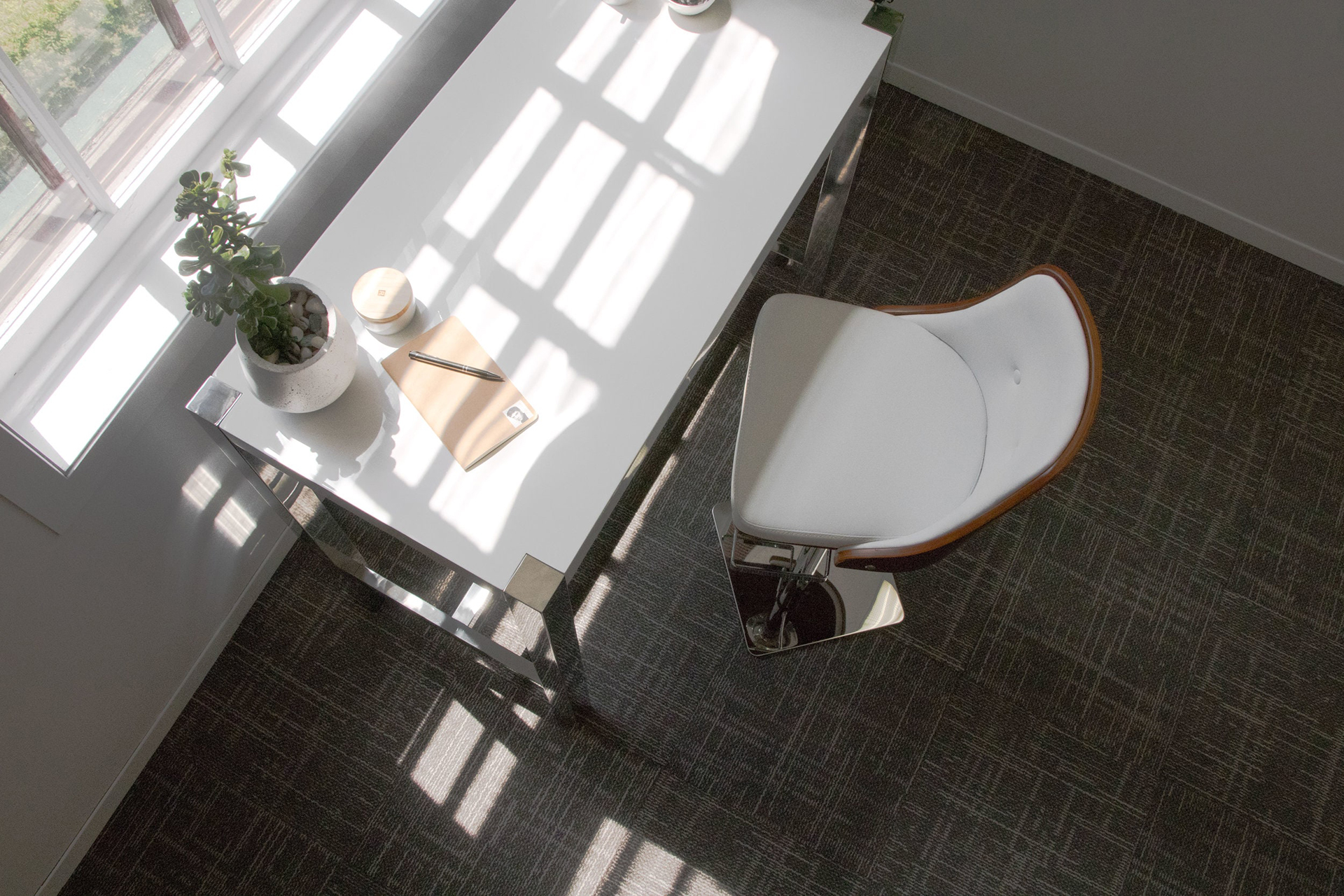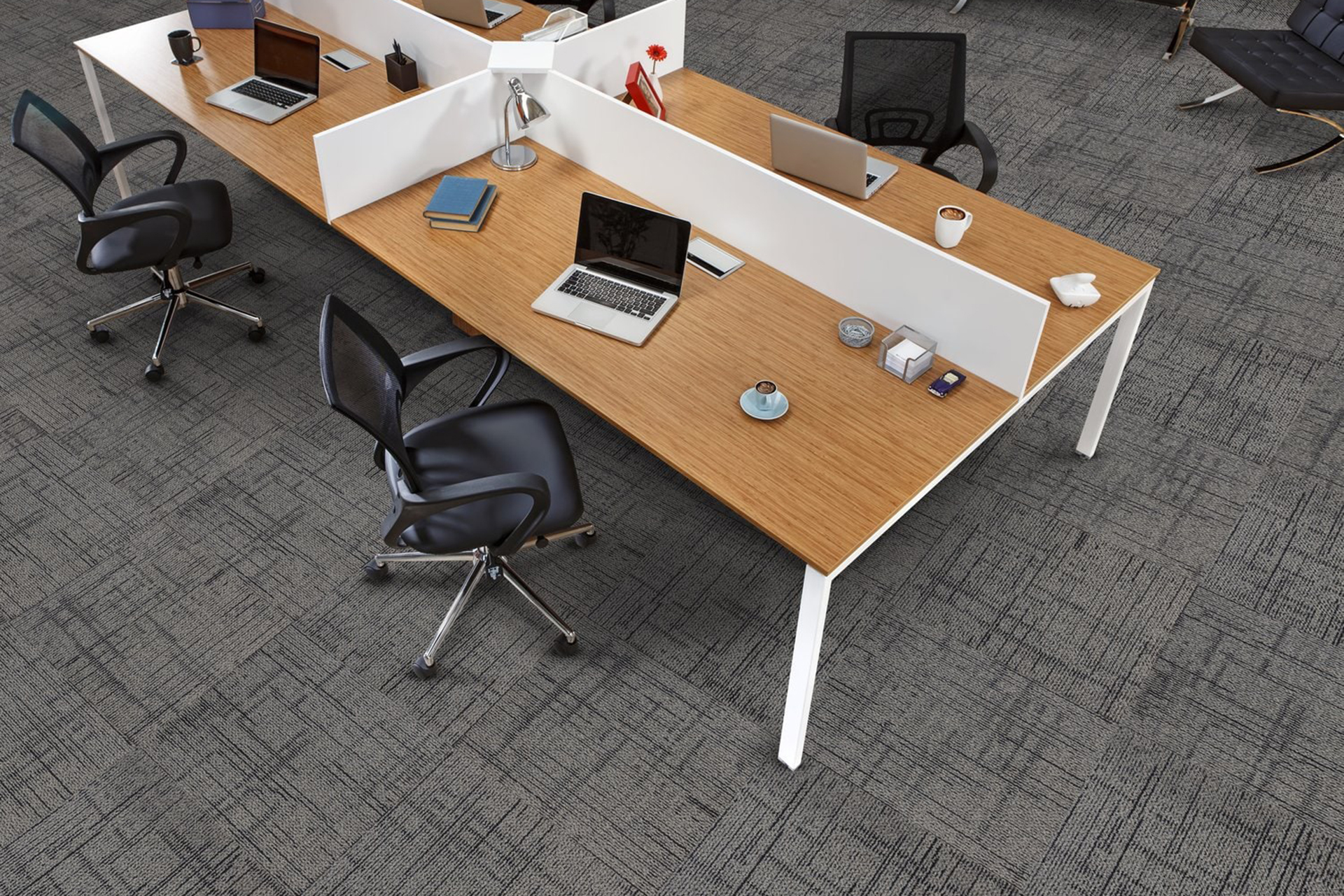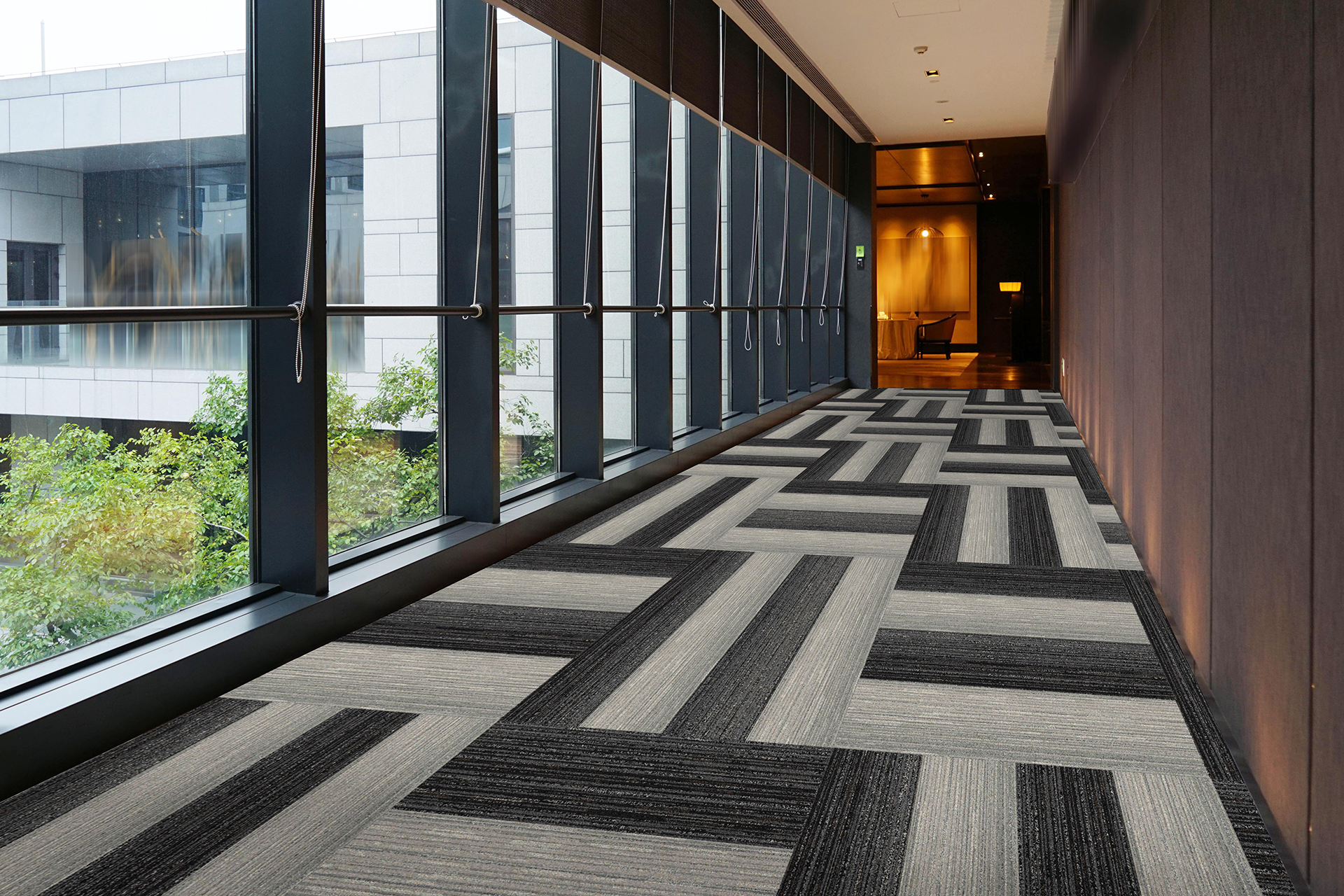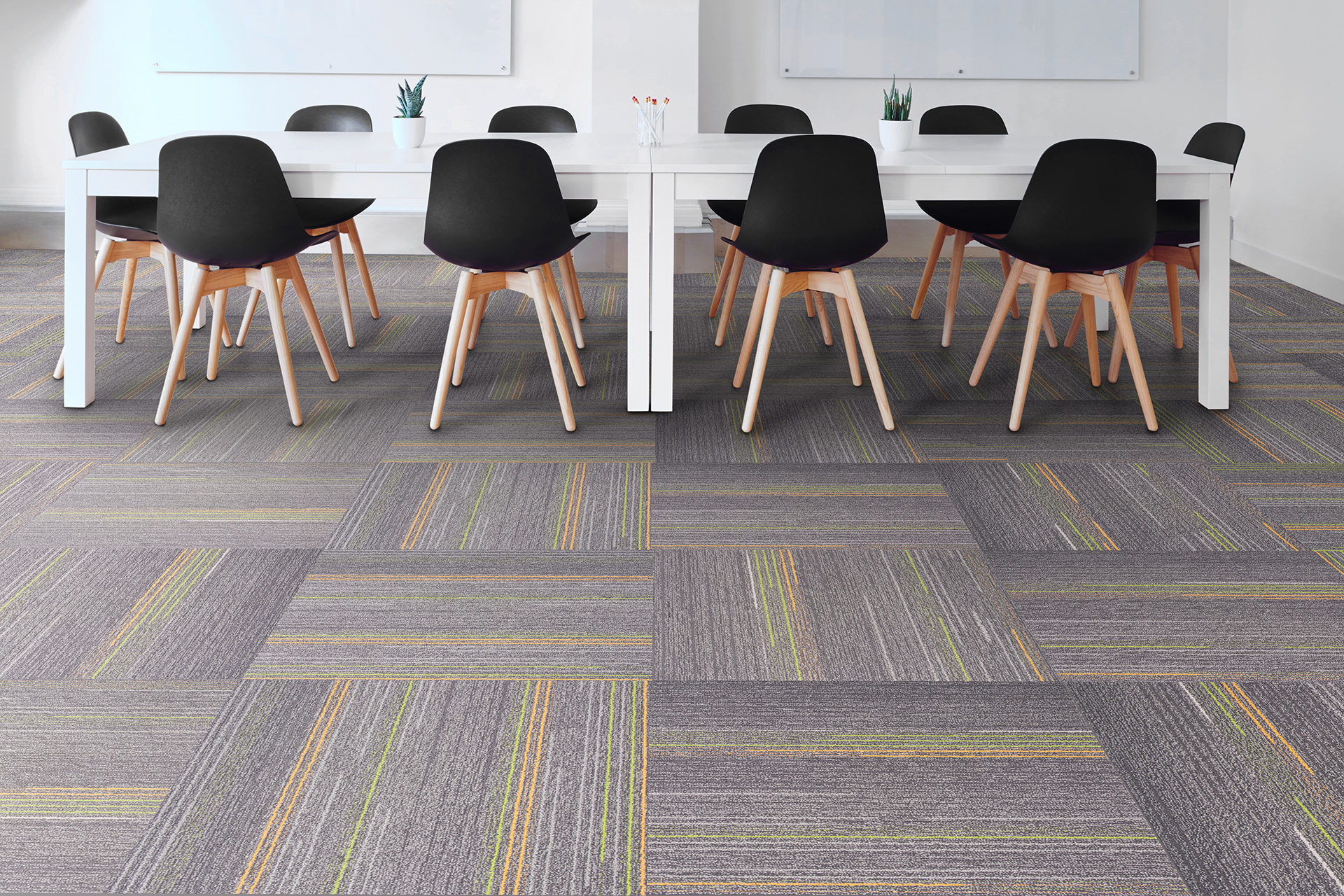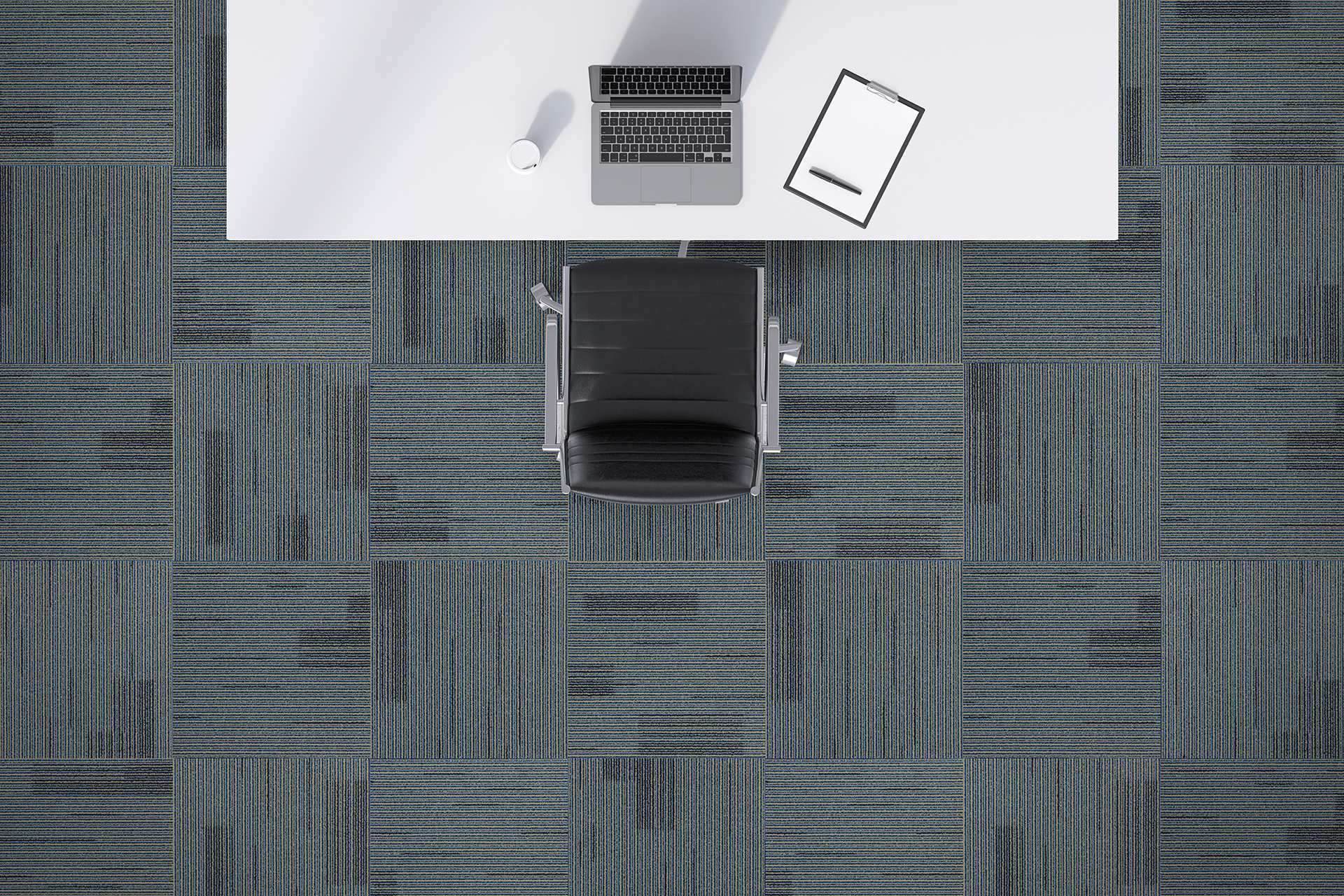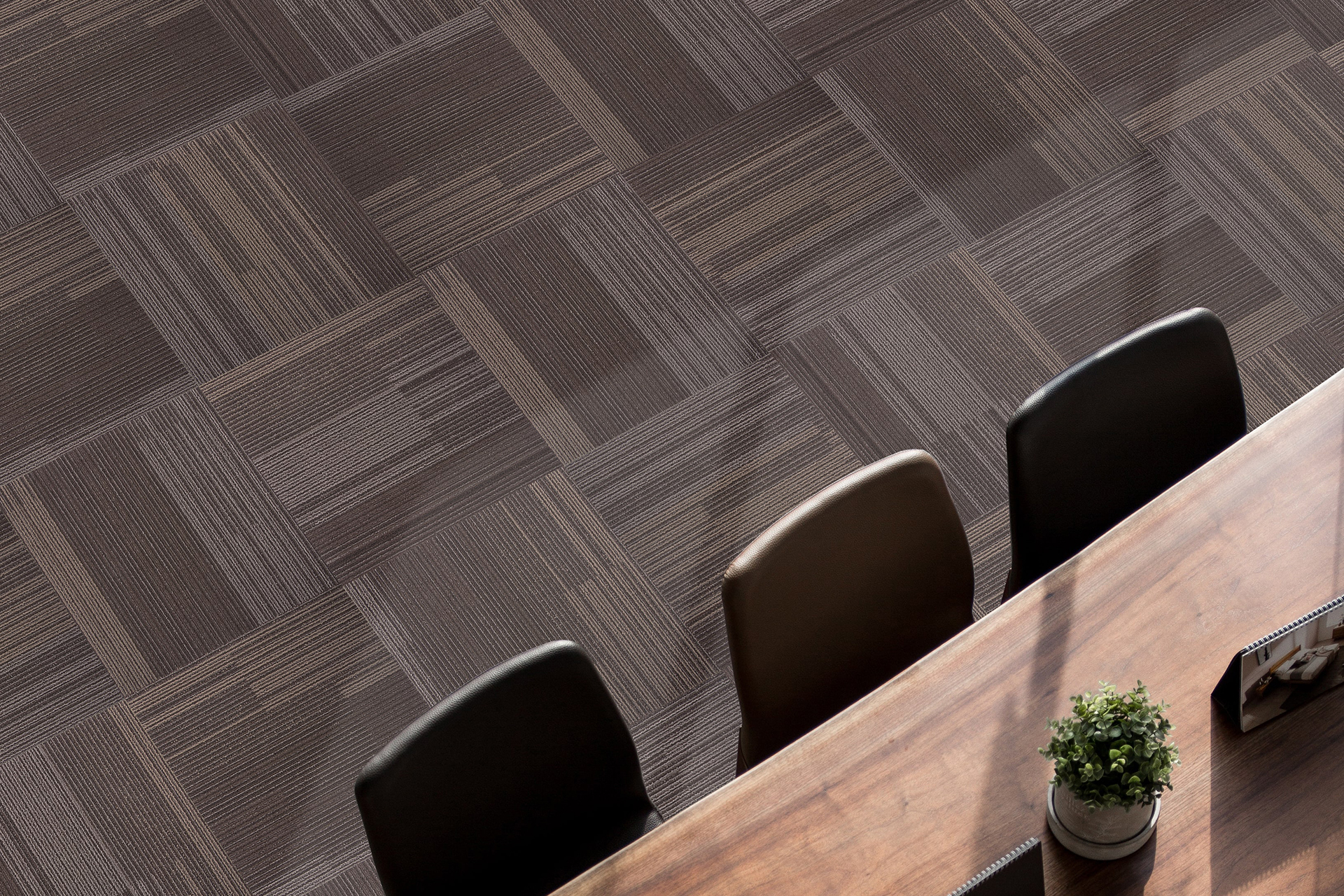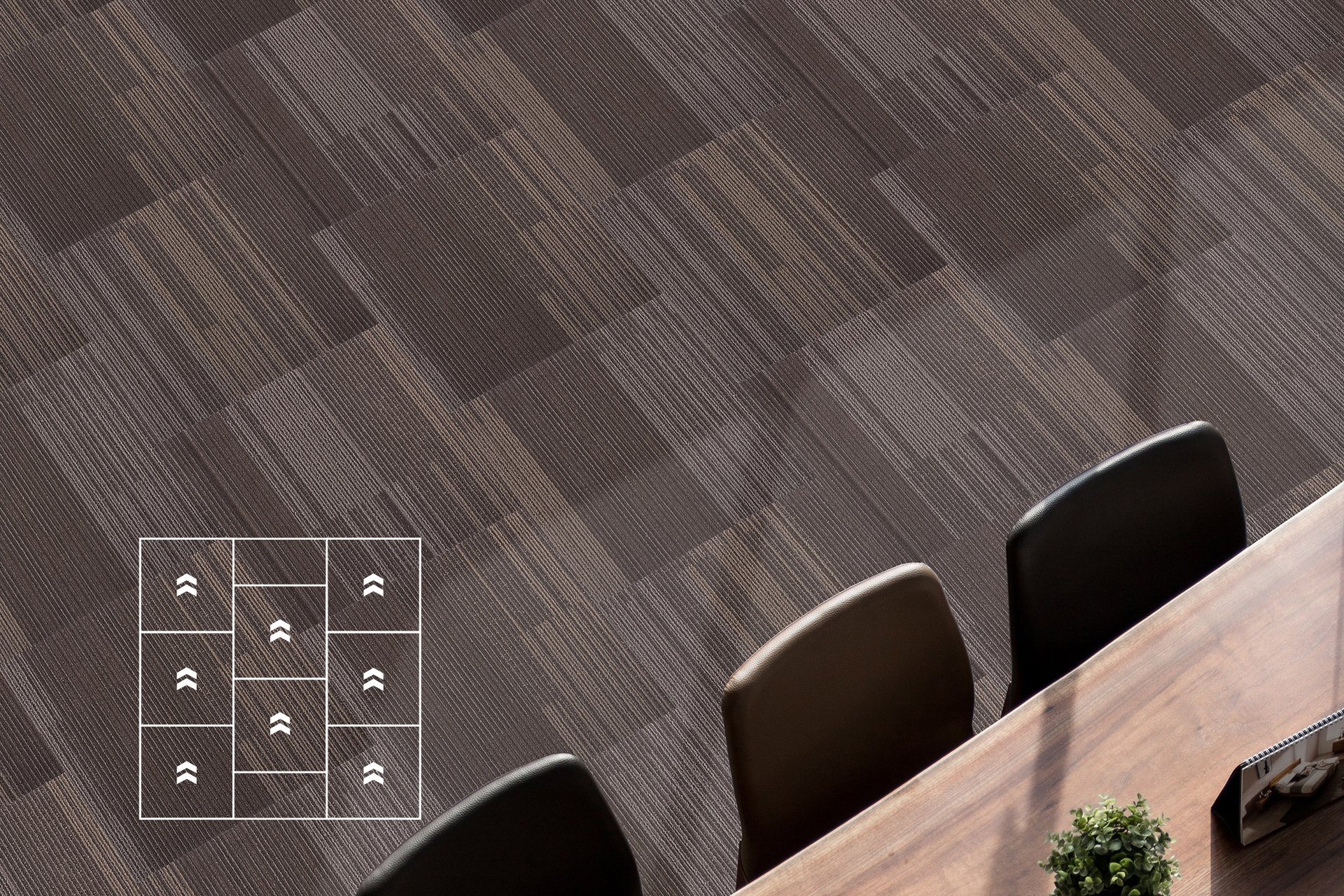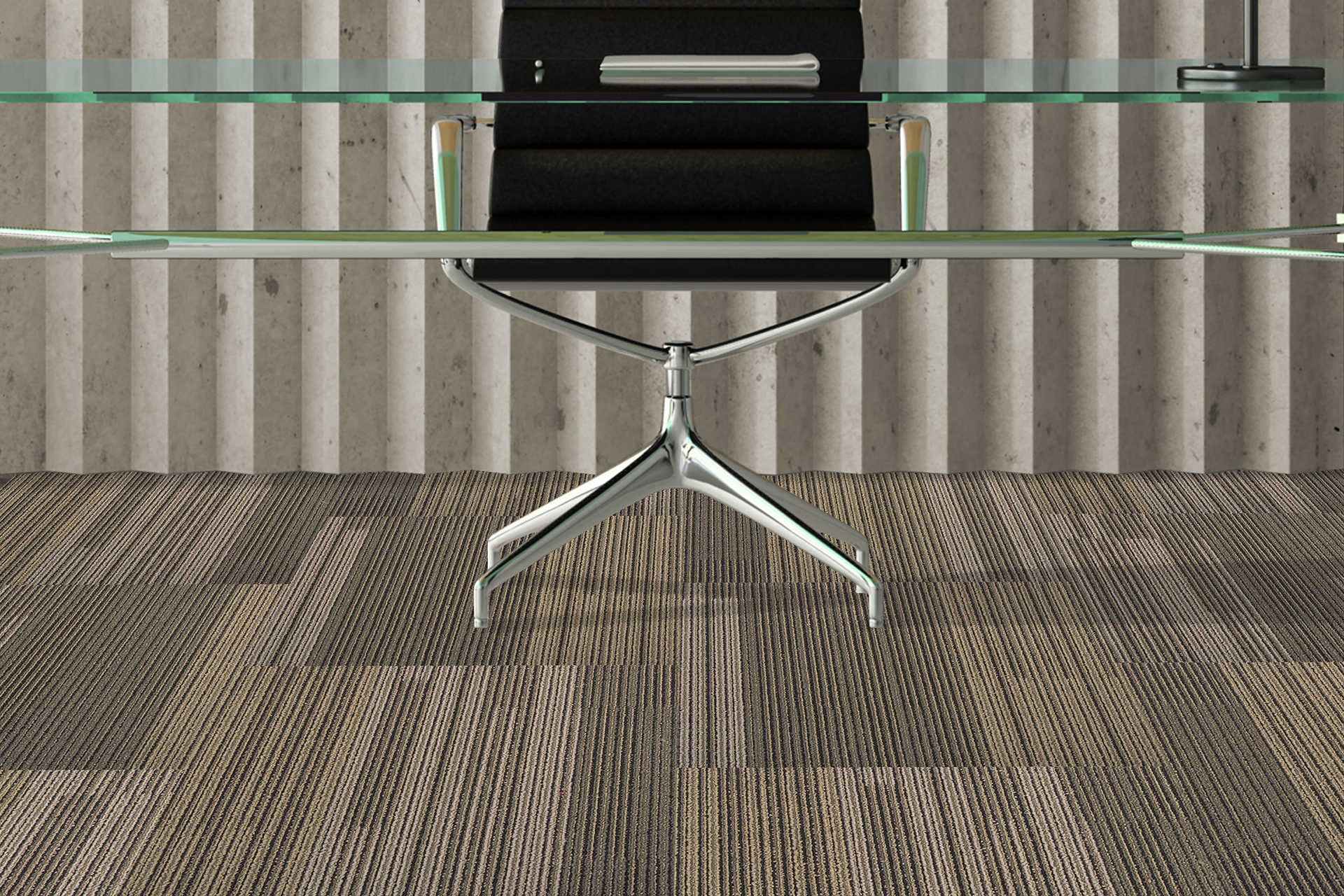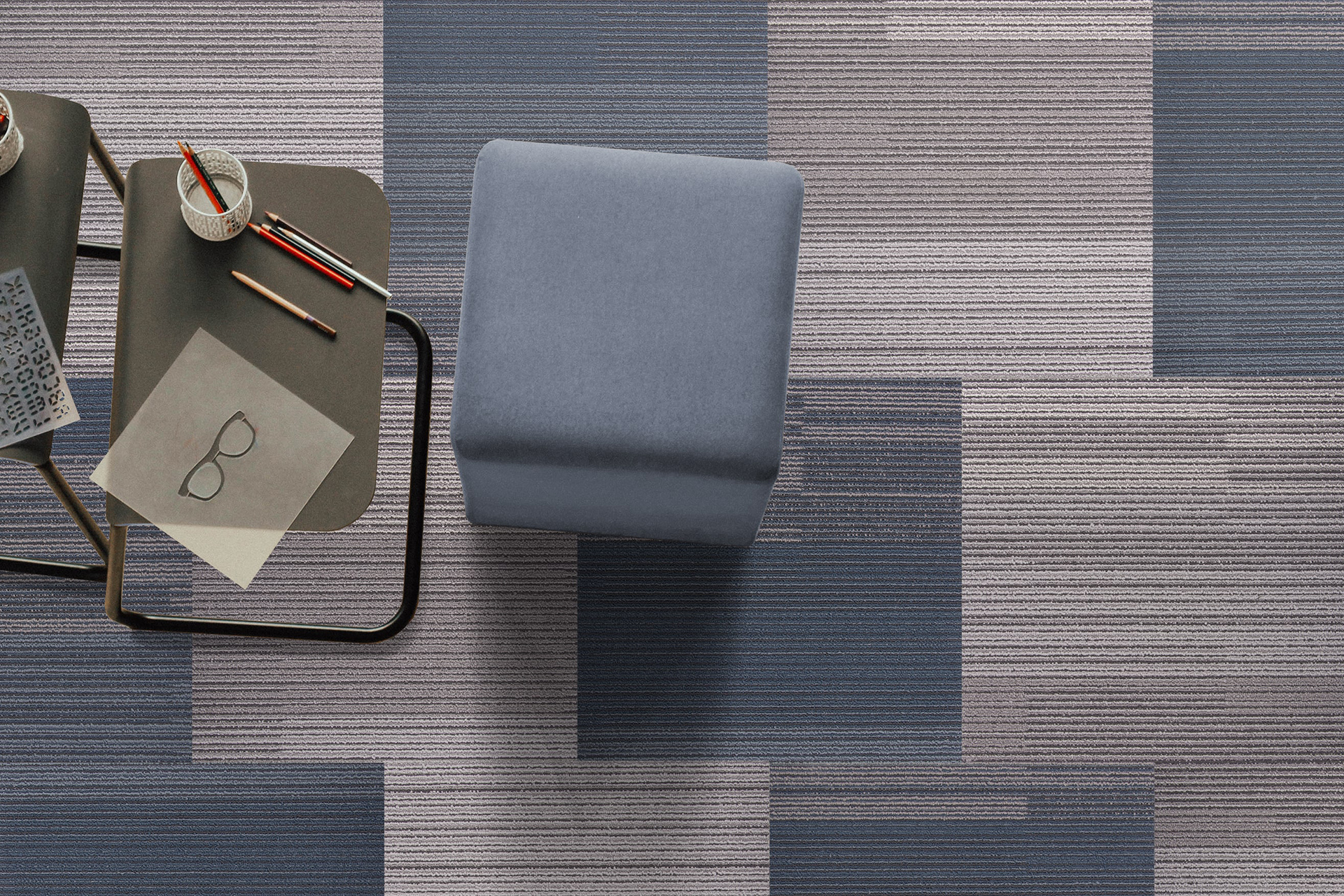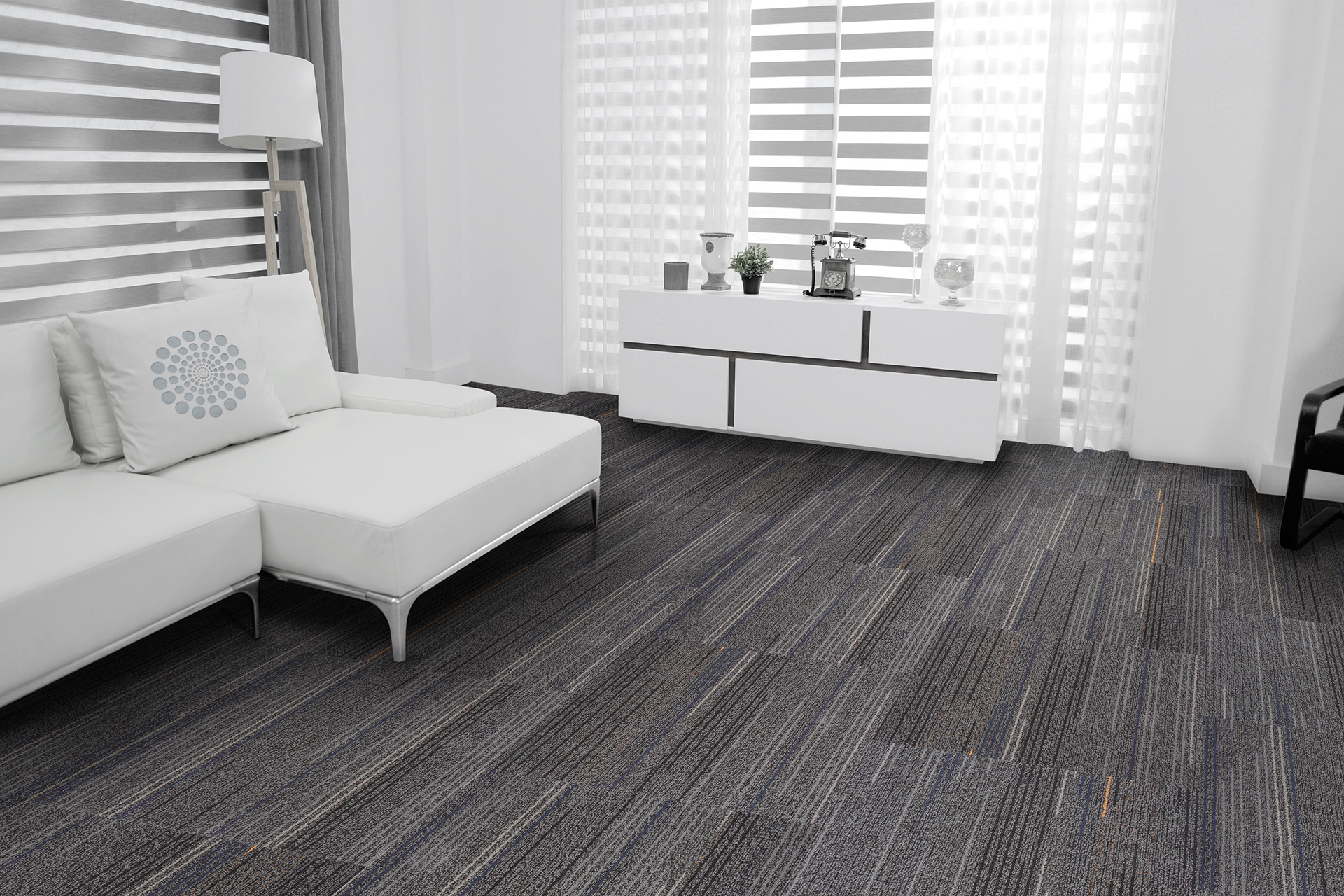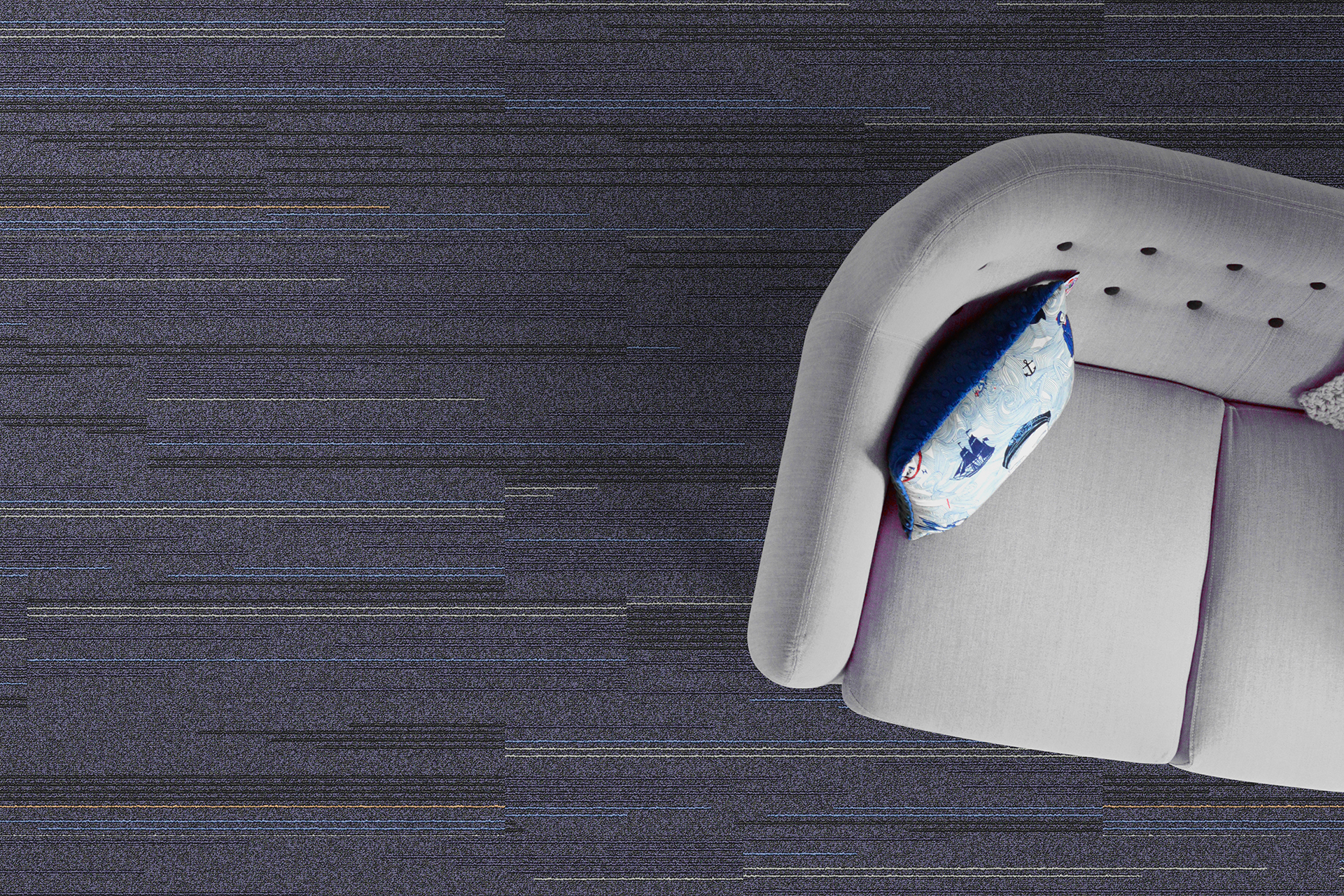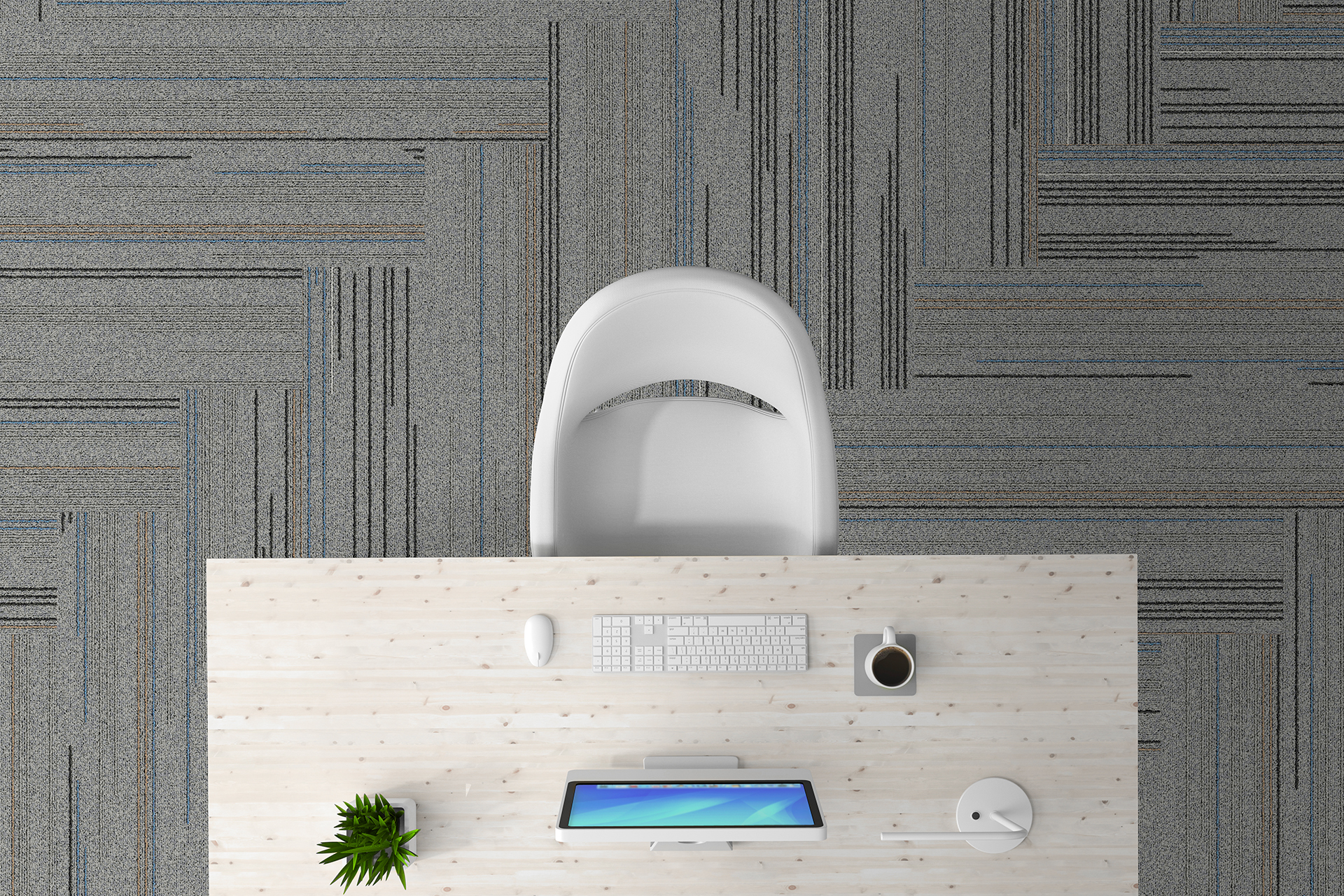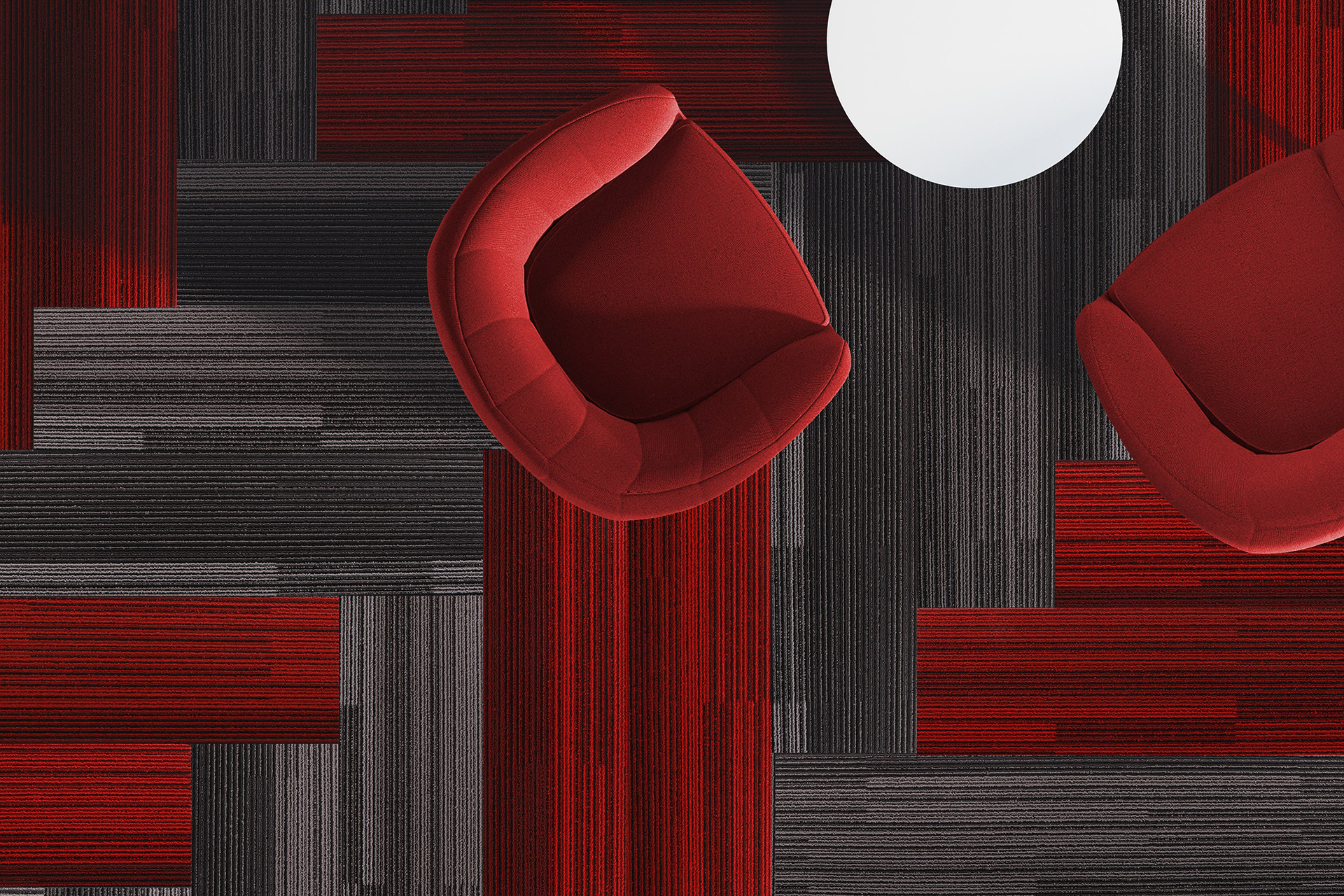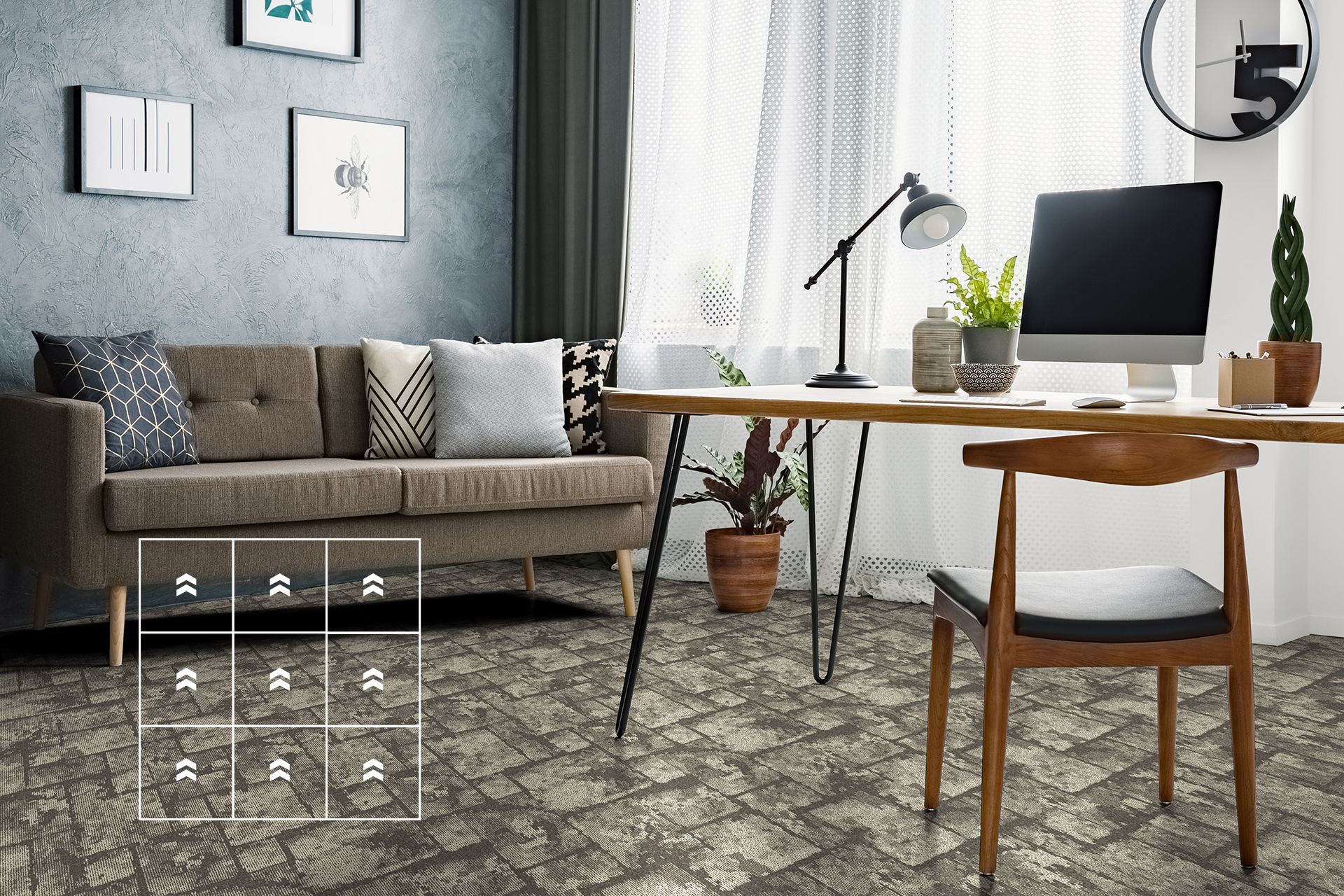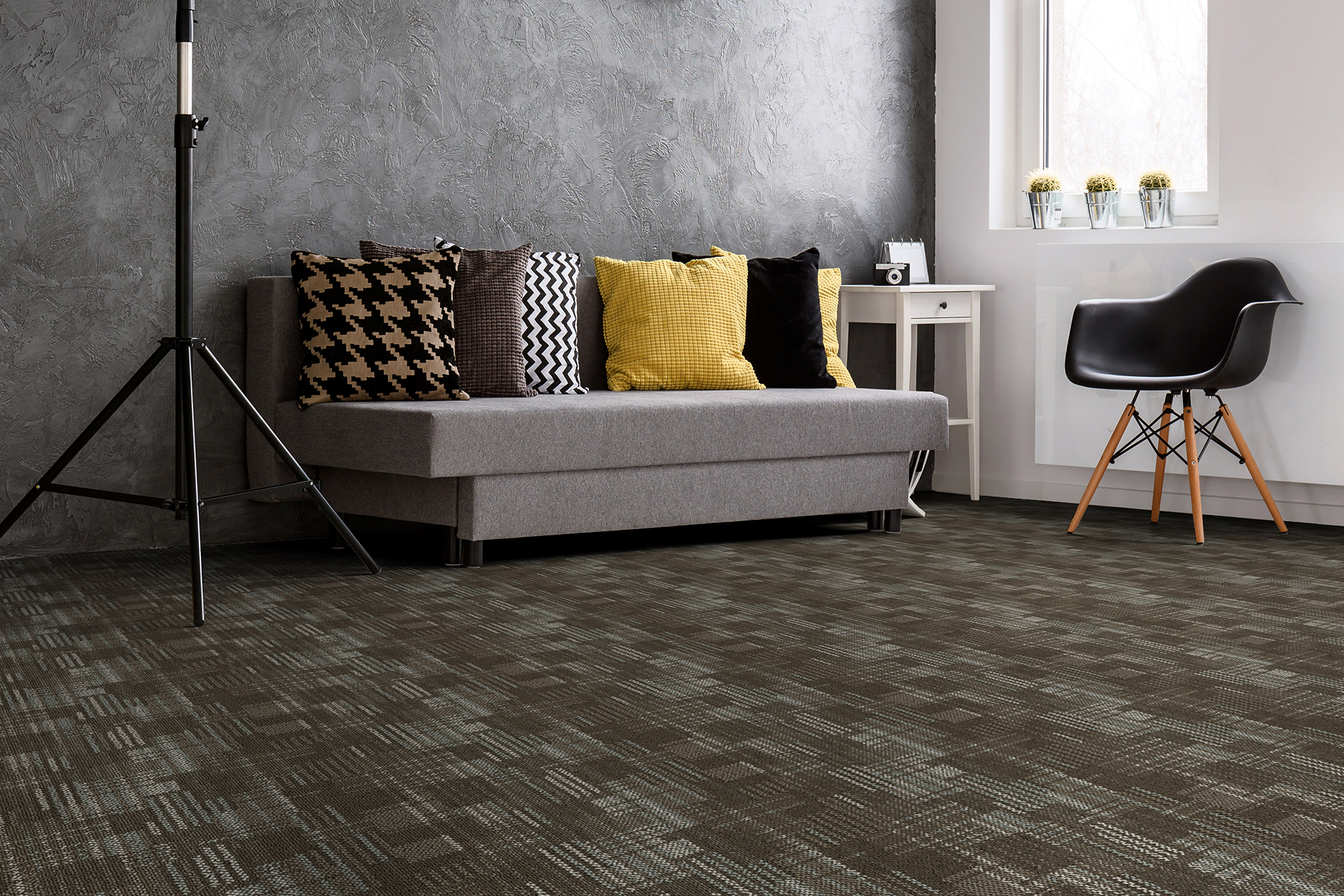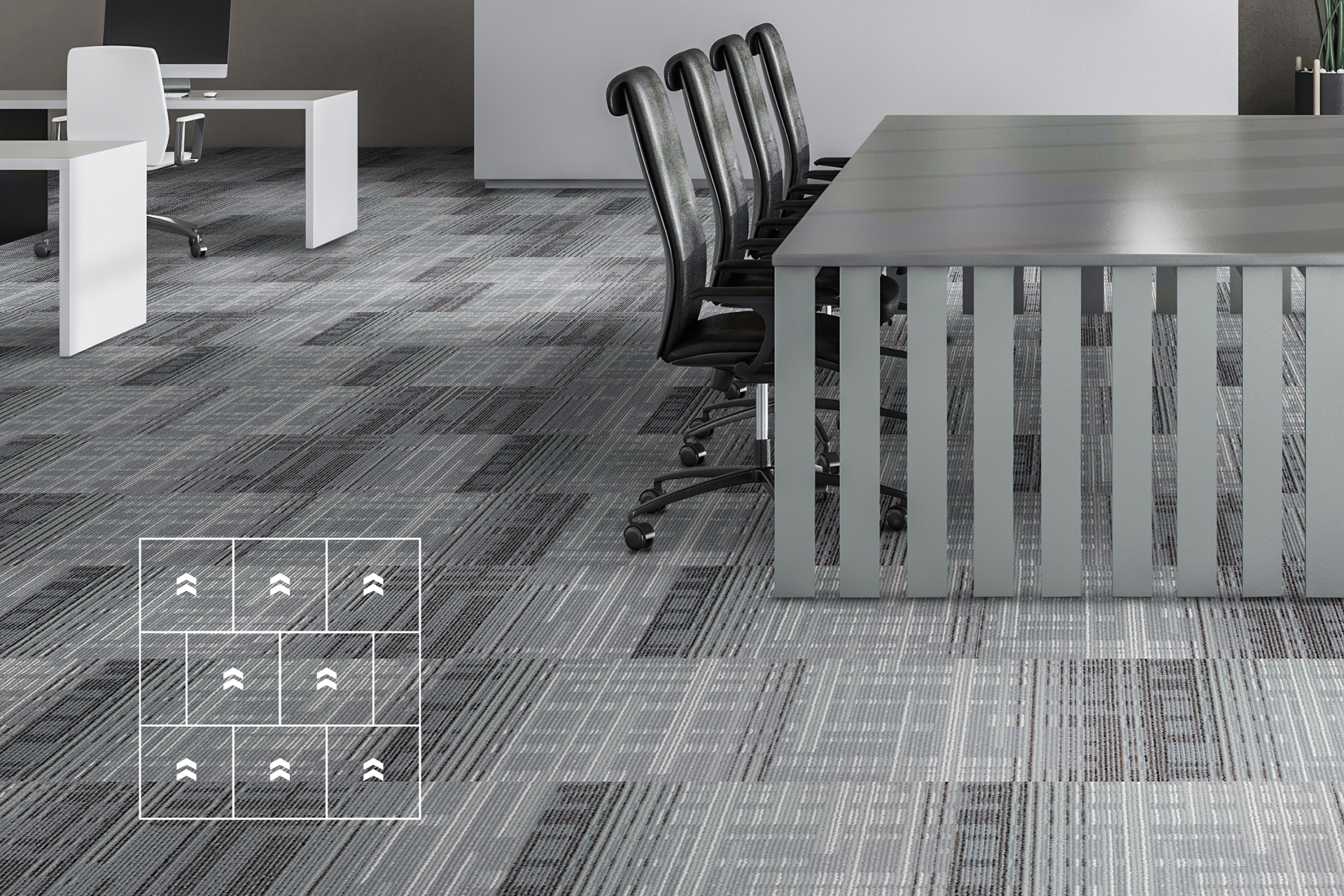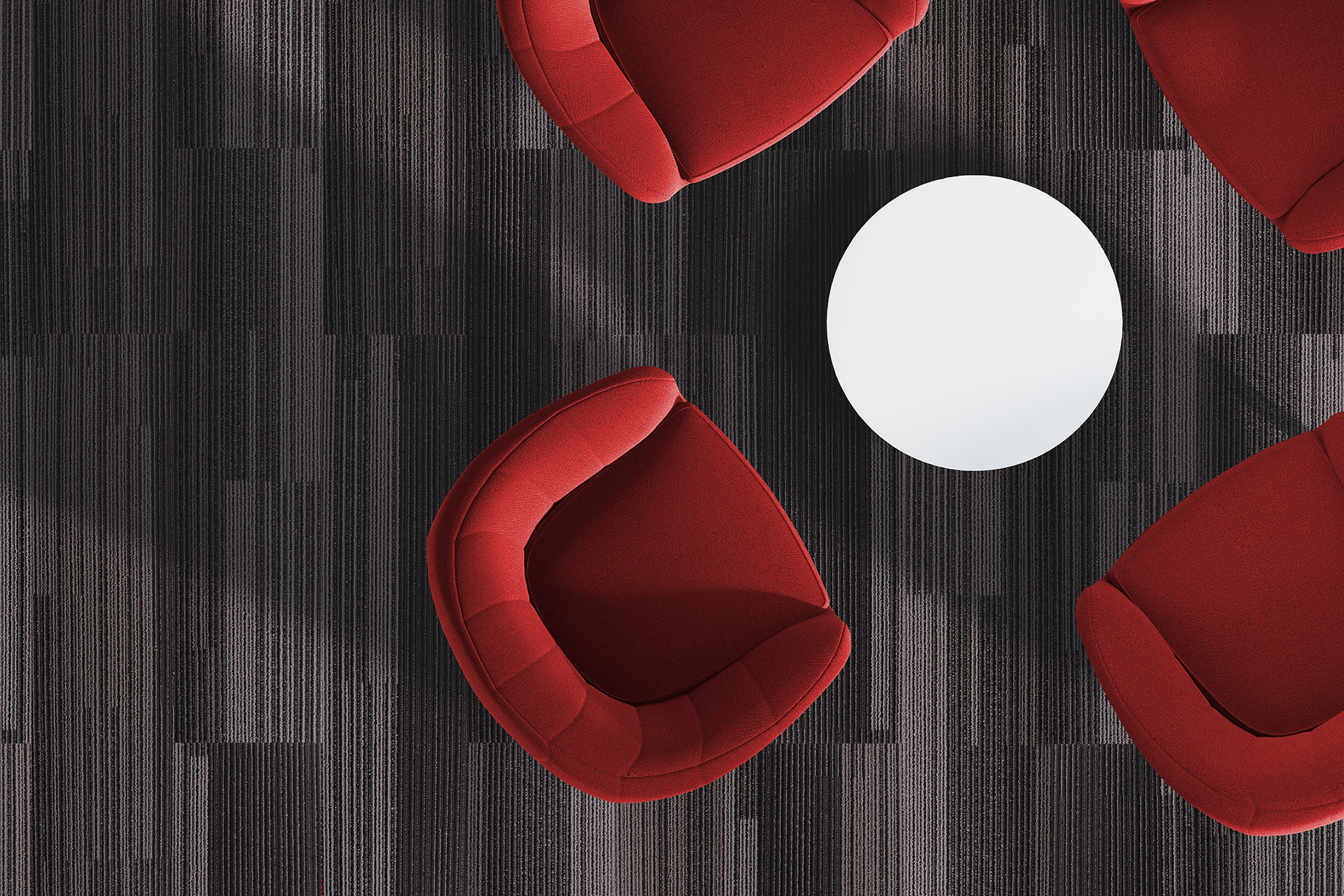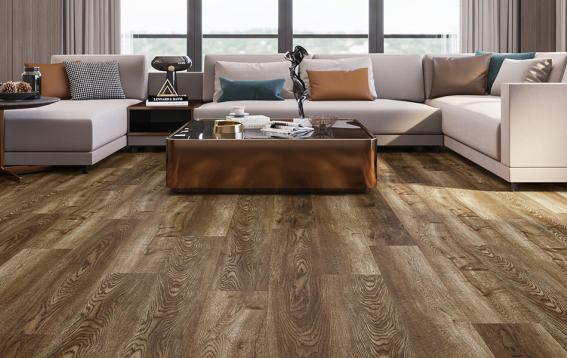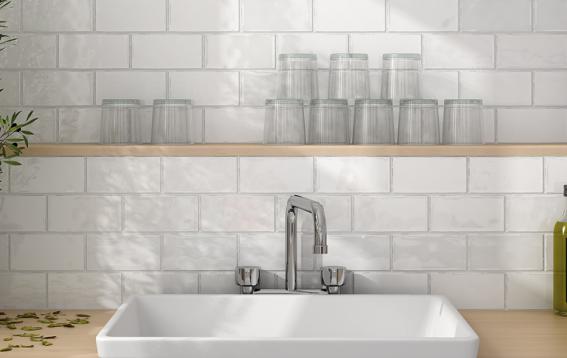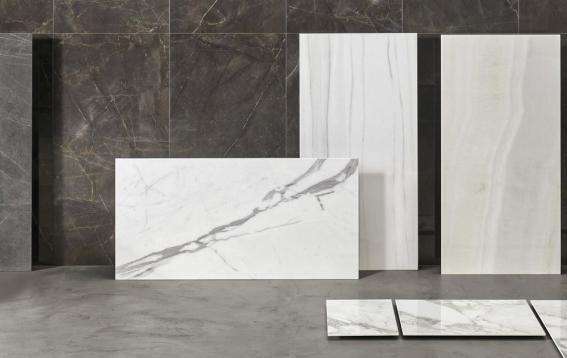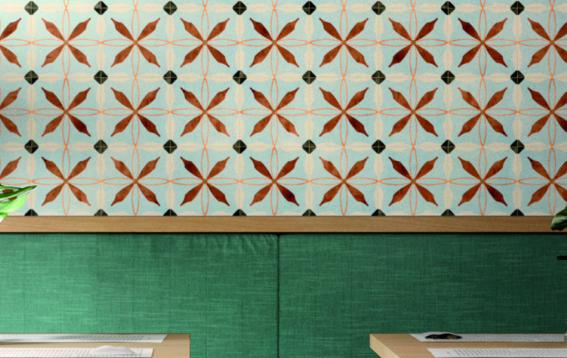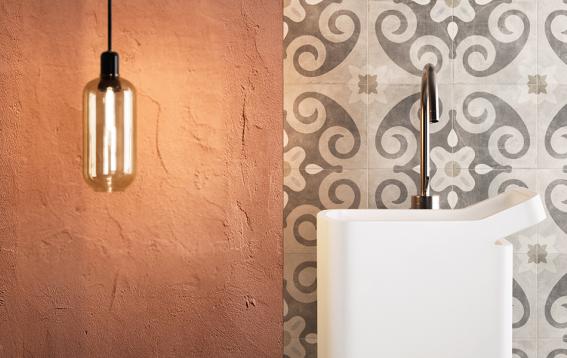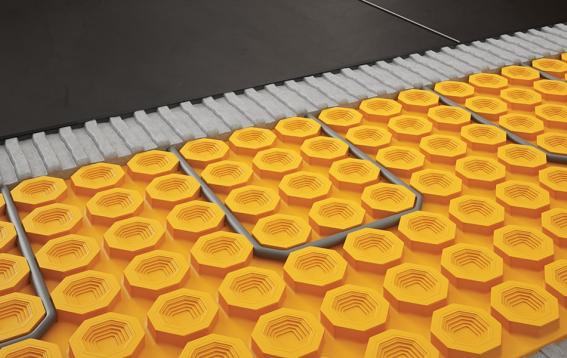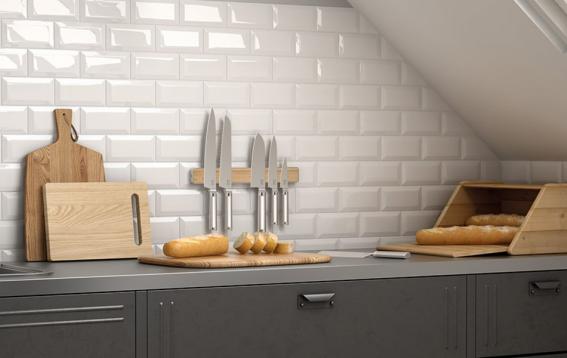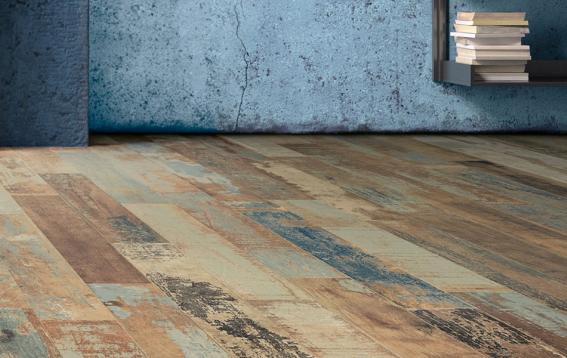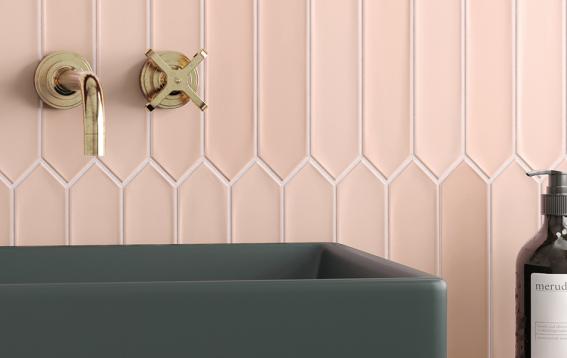April 16, 2021
Carpets: comfort and design
Carpets are an elegant and economical floor covering that provides great comfort to the feet. Often a good insulator, it also protects from the cold and attenuates ambient noise. These qualities are undeniable for a residential use and in certain commercial projects
In partnership with recognized manufacturers such as Standard Carpets and Venture Carpet, a Canadian manufacturer, we offer synthetic fiber products in a wide range of colours, patterns and styles. In tile form ( 20” x 20”/ 20” x 40” / 10” x 40” ) or in rolls ( 6’-6” or 12 feet wide ), they will simply charm you. The advantage of tile carpets is that they are easy to change if there is an accident or if some tiles are too worn. Also, it is possible to make several different designs with the same type of tiles thanks to installation patterns such as: brick, quarter turn, herringbone, ashlar or semi-ashlar for the carpet slats.
There are two main categories of synthetic fibers offered at Centura: polypropylene and nylon. Here is an outline of the characteristics of each category.
Nylon
Nylon is the highest quality synthetic fiber. It is the next best choice after wool and has a very similar feel to it. Most nylon carpets are solution dyed so they will not discolor when cleaned and are resistant to the sun’s ultraviolet rays. Its color will not fade due to its solution dyed pigmentation process. We love them for their durability and ease of maintenance. It is a product that has good memory resilience so even if the fiber sags a bit, it returns to its original shape. It’s also a great commercial grade product and most of our nylon carpets come in tiles and rolls.
Quality
The quality of a carpet can be recognized by its fiber type but also by its density. A high quality residential carpet will have 30 to 50 ounces per square yard, while an entry level carpet will have less than 30 ounces. In both cases, it is advisable to install a good underlayment, depending on the comfort you are looking for. It is important to seal the seams under the carpet and apply a clear sealer to the seams for best results.
Polypropylene
Polypropylene fiber is very popular because it is more affordable than nylon. Polypropylene is always solution dyed so it does not fade. However, the fiber is less resistant to crushing and may be less comfortable to the touch. It is still a quality product but you have to be a little more careful if it has different heights or patterns because its fiber has no “memory” so with wear, the patterns will disappear. It will require a little more maintenance if you want to give it a better life expectancy.
Installation
For commercial roll carpet, it is recommended to glue directly on concrete or plywood with our TA706 multipurpose adhesive from TEC. Here again, it is strongly recommended to apply a transparent sealant on the joints for a better performance. For tile carpets, it is recommended to use a ”temporary” pressure sensitive adhesive, such as TEC’s TA749. This will make it easier to replace a tile that has been stained or worn out prematurely. For baseboards, you can order a single backing carpet, 2 meters wide and cut into 4” strips that you will have serged or braided. Normally, the installer will take care of this part and the baseboards can be glued or stapled to the wall.
6 Installation types
for carpet tiles
Quarter-Turn
Ashlar
Herrinbone
Monolithic
Brick
Semi Ashlar
For its cost and reasonable installation fees, its comfort, its high impact and sound reverberation properties (ideal for home theaters) and its diversified styles, carpet remains a wise choice for your residential and commercial projects. And despite the popular trend, this type of floor covering is not dangerous to your health, especially if you make sure of the quality of the product and that you maintain it assiduously, like all other types of floor coverings.
More article





